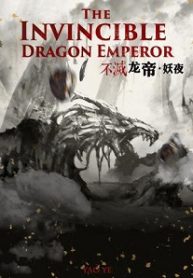Wisher Beware - Chapter 47: Setting Out
Chapter 47: Setting Out
“Did you really need to aggravate my Domina that much?” I asked my companion as soon as we cleared the auxiliary city gates.
Cart and horse traffic was mostly forbidden across the entire city during the day. There was plenty of odours as is and the streets were already busy with all the people walking back and forth. One had to wait for the dim hours of twilight in order to bring bulk loads. Unless it was a Manorial business, of course.
Granted, Manors didn’t outright defy the laws set for everyone else. They did however pay for small roads that connected their manors to a few secondary gates around Samat. Roads were kept clean from manure and provided extra funding for the city, while the gates offered much easier passage and less traffic for their renowned clientele. And different taxation too.
As one could imagine, you had to be rich to participate. And most likely have permission from Samat Manor for doing so, which ensured that only other Manors enjoyed this privilege.
“Yes, or we would have never left this quickly,” Albin spoke from his humongous horse. Its large hooves stumped heavily into the ground. I sat in the cart with the food and gear for our travel – our trip would take a few days there and back and neither of us was willing to sleep hungry in the night. I also had no idea how to ride a horse, so riding in the cart actually made us move faster. Especially since we would need a cart anyway for my family.
I also didn’t even need to guide my horse, the smart animal simply followed Albin’s horse. Small mercies.
“The issue with the Sphere is that it isn’t hers. No matter how I would have approached it, it would still be a different Manor trying to wrest away her control. It is why I had shown her the Sphere, to begin with — I needed her to have additional leverage in this deal or she would have never agreed to it.”
“You wanted her not to fear the uncertainty.” I tried to digest the meaning behind his words.
He nodded, horns swaying along with his long braid. “Precisely. If she sees me as an eccentric my actions stop being dubious and become expected. Kiymetl didn’t earn their fortunes by being reckless, well most of the time.”
“But are they dubious? Your actions, that is.”
He smirked, “Good, you are cautious. There are plenty of people, that even Aikerim Adal won’t be able to save you from.
“But let me give you a question to allay your fears,” He reached into his riding coat and pulled out a parchment, “Look at this map and tell me what you think.”
Unfolding the large piece of leather, I was greeted by a rather oddly-drawn map. I had seen general maps of the city that were carved on tall marble pillars, the waystones, to orient oneself and figure out the direct path to a specific area. From the glimpses that I saw, the Kiymetl manor had even more detailed maps of the manor that had all of its buildings correctly drawn in their location and size.
This map looked like it was drawn by a five-year-old.
The Shara river that weaved her way to the city of Samat was drawn as a straight noodle, While Nuur, her northern counterpart, was drawn as emerging straight from the mountain range in the east and then doing a sharp turn in the centre of Emanai and heading straight north from there. Cities were mostly circles or specific buildings, most likely representing the major product. Or even a sole one. And most of the time it was grain.
Including Chimgen, a tiny picture of a manor with stalks of grain drawn around it.
“Er, why is it so imprecise?” I asked him, pointing at something that belonged in the museum of ancient history.
“What do you mean? All distances are written down properly.” Apparently, my confusion was not something he had expected either.
I grabbed the map and looked at it again, past the geographical liberties this time. Every object of interest was connected by roads, some even had names themselves. But almost all of them had a note, specifying how many days a trip from point A to point B would take.
This wasn’t an exact map, yet it had exactly everything a traveller or a merchant would ever need — whether to expect crossroads, which direction to take and how long the trip would last. Emanai wasn’t a highly urbanized place with a myriad of roads. There were only few major roads that linked important centres, not an interconnected grid of forgettable roads leading from nowhere to nowhere.
“You had expected one from a bird’s-eye view, didn’t you? I don’t think even one exists of the whole Emanai, you would need a horde of artists to draw it and even bigger piles of gold. And if you try to map it piece by piece, by the time you are over, you would need to start again.”
I nodded along to his explanation, fascinated by what the difference in priorities would result in. Despite the fact that they knew about screws they haven’t realized that one could take the oil press and turn it into a printing machine. As such, books were expensive, so were maps as each one was hand-drawn.
They weren’t making shoddy maps because they couldn’t draw well — they were using symbolic representation to imprint the most crucial information down in the shortest amount of time.
And it worked. Despite their look, I still could recognize and identify what was where from a first glance.
Emanai was rather lucky in its location. Or I should say the major reason it could prosper so much was because of it. Established in a large, fertile valley, and protected by the twin mountain ranges on each side, while the waters of the South sea and the bay of Tir in the north made it extremely easy to protect the tiny borders it actually had.
Borders that could make or break any country. There were no neighbours that shared their borders with Emanai. If there were some in the past they had been conquered a long time ago. From what I could piece together, just like many other countries in this world, Emanai was surrounded by Forest. A name given to the real wilderness, rife with magical creatures. Creatures that didn’t care about political borders or treaties. That was their home. And they didn’t ignore a crunchy snack that tried to settle there without sufficient defences.
It wasn’t an unbeatable foe, however. The fact that humanity hasn’t been wiped out already proved that they could be beaten and pushed back. But keeping the territory while still growing your population was not an easy challenge to overcome. And each country had attempted their own shortcuts to carve out a place in the sun for them. Emanai relied on choke points, while Yusuf used the harsh desert to keep itself safe.
And I could see Emanai’s previous successes and failures on the map as well. The bulk of the land was crisscrossed with old borders that split the country into smaller segments, easy to defend and recapture if they get overwhelmed. Yet there were borders outside too. Which meant that either Emanai shrank over time or simply met its hard limit in expansion and was finally pushed back.
“It reached its limit.” I quietly mumbled, remembering my previous tirade in front of him.
“You see it too, don’t you?” Albin’s voice spoke to the side, looks like he noticed me zeroing in on the borders as well, “I know of hundreds that wouldn’t even notice that and tens that wouldn’t even understand if I tried to explain it. And that is the reason why I want your willing input and not a forced one. It is not the knowledge that I seek, but a mind behind it.”
I blinked, “Fair enough.”
He reached out and patted me on the shoulder, “Even that quip on the map was telling, in your heart, you are yearning for the sky, young daimon.”
I glanced at the sky above us and nodded quietly. He was absolutely right.
I didn’t crave to travel, but the inability to do so was a constant reminder in the back of my mind. Some things you notice only when you miss them.
We rode in silence for a while, mostly because the road we were on finally merged into the Great road. The same one that I walked on foot to be sold off merely two months ago.
The road was extremely busy this time around. Perhaps it was due to the upcoming Divine Ritual, perhaps it was just as busy back then but I simply didn’t notice — most of the traffic was heading into the city. Our cart and a horse parted the never-ending flow of produce — a giant always-hungry beast, taking the constant toll from the land around it.
Even the few farmlands was a mistake on my part back then. Now that the summer was in full swing, I could see that all of the lands around Samat were used for something. Back then I recognized the wheat fields and olive orchards, something that I was quite familiar with throughout my childhood. Now I could distinguish other growing fruits and vegetables.
Perishables. Close enough to reach the city and not spoil.
“Do you ship ice from the mountains?”
Aikerim was eating grapes quite early in the season. The twin mountain ranges trapped the warm humid air from the sea resulting in a Mediterranean climate, but winters were too cold for the grapes to grow year-round.
Albin followed my gaze, “No, usually some part of Flow training consists of ice creation for the cold rooms.”
Ah, magic again. That was cheating. Flow was convenient. Unfortunately, it was only convenient for the very top of society.
I put the map aside and pondered for a bit, drumming my fingers on the wood of the cart. I might be wrong, it might be a fortunate thing instead. Wermages could likely solve any issue they had with magic alone, but the very important detail was that they couldn’t solve all of their issues at once. Manors could circumvent that by a bit, by sharing certain tasks among the growing population of the wermage family, just like the magical refrigeration, but every new wermage added their own demands and issues that needed resolution.
Flow was an enormous power multiplier, but it was a personal ability that could only be shared via offspring.
I shook my head, shaking the stray thoughts away — my course was set. I might have subconsciously been heading there anyway, but it was right now when I was travelling back to free my family, that I finally settled on my plans for the future.
I also knew that Albin had been a tremendous help throughout my stay in Samat and he deserved some sort of reward for his actions. Gratitude and the likely success of our current endeavour aside, I would still do it. The more powerful people I knew that shared or at least subscribed to my ideas — the better.
I stretched, put the map aside and faced Albin who kept riding quietly as I was perusing it. Patiently waiting for me to process the new knowledge and settle in my thoughts.
“I will be honest, there are many things that I don’t know. Many things that I don’t understand in general or even right around us. Just like some of these,” I pointed at the pines with needles of deep burgundy and pale trunks. They were almost non-existent in Samat but once we were further away I started to notice them once again. “But I will at least start. How does a country grow in wealth?”
He grinned and sat straighter, likely expecting a deep discussion and the obvious distraction from the quiet ride. His tail slightly wrapped around the body of his ride for extra stability. Judging by the steed’s lack of surprise — something he had done quite often.
“A country profits from its land, and the lands of others that it is superior to. And these things are called trees, if you are talking about these specifically they are from the Forests outside the borders. They are rare here but out there you can walk for days and see nothing but them.”
Interesting, but that could wait for later.
I nodded at his response, “Precisely. The natural resources of the land, its riches deep in the ground and the ones that grow above are the primary source of wealth for any nation. And the military is an obvious way to make your country richer at the expense of others. And I will probably agree that Emanai had done very well for itself in that regard. But we wouldn’t be talking about that if we didn’t recognize that it wasn’t enough.
“Emanai is blessed by the fertile cradle it grew within but it is unable to expand further beyond its current borders. Because it is stuck in a loop. You need more manpower to man your expanded borders, which means more mouths to feed and more land to cultivate. A land that you don’t have without expanding the borders. A land that will produce nothing unless you have farmers or slaves to tend to it. Which means even more mouths to feed.”
I patted the map. “Most of Emanai are farms, most of the population are farmers. If I closed my eyes and took a hundred people from all corners of Emanai I would end up with ninety of them being farmers. Ninety per a hundred, per centum, percent. And then there are other labourers like miners. In the end, I expect that each warrior needs ten farmers or slaves just to feed him alone. This is your choke-point Albin.”
He rubbed his chin, “Is that what you were referring to back then about food? Flow can make wheat grow faster, but what you are talking about is increasing the production of the whole country. Even if you make every wermage stand in the fields and maintain the magic, it won’t be enough. And you are unlikely to make any to do so, to begin with.”
“I wouldn’t even try,” I chuckled. “A mere murk telling the esteemed wermages to roll their sleeves and get dirty? I like living way too much to do so. What I am suggesting is the slow and steady improvement of the entire farming sector. As a former farmer slave myself, I can tell you without a doubt that most of the farming is simply done by throwing cheap labour at it. After all, what is cheaper than a slave?
“What Emanai needs is farmers with tools; steel ploughs, sharp and strong to easily lift the land. And more.”
He turned to face me fully, “And where would you get these ploughs made of steel? And in the quantity to affect the global food production. Steel doesn’t grow on trees.”
“And here I would want to take you back to the original question that I asked. About the wealth. There are other ways to grow wealth than to take it from your land or from the land of your enemies. Kiymetl is a good representation of another way to generate value — they utilize the difference in the value of products from where they are made and where they are consumed. They generate wealth by making products available.”
“But it also doesn’t make more food either. It just prevents it from rotting in one region while the other starves.”
“Yes, it was just an example, but trade would be a significant aspect later. There is another one that is actually relevant to our discussion. In the end, farming is nothing more than value generation from human labour. You start with land and water, add work and time, and end up with land and produce. Sounds identical to a craftsman turning raw materials into a valuable product, wouldn’t you agree?”
I leaned in closer, “What Emanai needs is the expansion of the middle class. Manufacturing sector. Artisans that would take something cheap and turn it into expensive products. Specialists that would only make a single item but make a lot of them or make them for a fraction of its usual price. All supported by the robust trade network moving the goods everywhere.”
“So you want the Manors to expand their primary trades?”
“Quite the opposite, I was talking about independent crafters. Manors would only need so much product made to satisfy themselves and would default to accumulating wealth in gold and letting it sit in their coffers without use. You want artisans to work for their own profit. Countless farmers working a bit harder to save up for that plough and make the lives of their children easier in return, or even allow some children to leave the farms and venture into the cities and become smiths themselves since there is less need for human hands in the fields and more wealth to be made by making more and more tools for the populace. And I haven’t even started on automation, tools that make products even without workers.
“Just like each farmer, each one of them will provide little, but they will improve each other, from the work of another. More tools — more efficient farmers — more hands available to make even more tools — even more efficient farmers. Do this long enough and Emanai wouldn’t need to conquer land or take wealth from others at all. For it would dwarf any other country with its wealth. It would be akin of you travelling across the Forest just to take a grain of wheat from some beggar on the street.”
“Wealth generation, nourished by trade, you say? Your Domina might be rather pleased to have you around. Very pleased. Does she know about what you just told me?” Albin murmured, his gaze looking elsewhere. Thinking.
I shrugged, “Most likely, by now. I didn’t have the time to tell her in person, but I left her with my notes to read. This knowledge brings more to the table when it is widely known.”
“It will require a significant amount of money, however. A farmer wouldn’t simply move into the city and establish a smithy or pottery. She would need to have enough silver to purchase materials and land and most likely either know someone to teach her or learn herself by practising for quite some time. No one has that kind of wealth to bury talents of gold into the ground and wait for the golden tree to sprout.” He looked at me slyly, “Unless you know some trick for that.”
I laughed, “Of course it won’t be simple. If I could snap my fingers and make it happen that would be quite some magic to have. But it is possible with time, and Emanai has made steps in the correct direction already or the cities like Samat wouldn’t even exist. Throwing money at the masses would be wasteful as you can tell. But we don’t have to start from the dregs of the society, nor simply throw the gold away.”
Even if the shuttle had everything I needed to regrow the ship and if I had total control over Emanai, it would still take generations for a better society to grow. They needed to act differently, think differently in order to become a true post-scarcity civilization and not a horde of people with all their needs met yet without a new purpose in life after.
But even that would be unlikely. I was not a dictator of Emanai that all had to obey. No matter how beneficial my projects would be, there will be others standing in my way. Some — because I was a murk, others — because my growing status and influence would threaten theirs, or make their status less grand in comparison with the growing wealth of masses. Not counting the fact that ‘generations’ in Emanai was a rather long period too.
“Money is not magic, but it can make a lot of things happen. But it can only do so when it flows.” Albin looked at me with comically wide-open eyes when I said so. “While having coffers full with gold would be beneficial for you in the case of unprecedented events, for the Emanai as a country, that gold is worth no more than the cobwebs it had been covered with for centuries.
“You need money to constantly exchange hands, forcefully in some cases. Like the Tithe of Safety that all free men have to pay for themselves and their chattel.”
The yearly defence tax, demanded from all who enjoyed the safety of Emanai and in return funded the borders and the army that protected them.
Albin nodded sagely, “Indeed. If Chimgen Domina didn’t need the extra funds to pay it off, she wouldn’t have sold you in the first place. Quite important.”
“I wouldn’t say I am not happy that the events occurred as they did. I remember dreaming of having a fresh loaf of bread and seeing myself strong, unafraid of the scary trees in the forest. And now look at me,” I chuckled as I pointed at the packed food. Albin didn’t arrive at the manor dressed to go — he came fully prepared for the multi-day trip. Packed with good food and even a few jars of wine for the road. A wermage bringing lunches for a murk. The young Erf would be frothing at the mouth, or quietly pass out.
“But that is not exactly what I meant. The tithe is in cuts. Not grain, nor skins or sheep. Money. This means that all these farmers that populate Emanai are forced to sell some of their grain during harvest just so they can afford to pay the tithe. At the time when the grain is most available and thus cheapest. That monetary tithe was an important step as it is likely the reason why cuts are so widespread across the country.
“Farmers don’t need much. They try to make enough to sustain their families, and they rely on themselves to fix their clothes or build a house. Self-sufficient. By forcing them to pay in copper you dragged them into the trade flow. By forcing them to work longer and harder you made them generate even more wealth for the country, both in the tithe that they had to give away and the grain they sold for cheap. All that extra influx of grain meant that now Emanai needed millers and bakers to process it. Carpenters to build mills and bakeries, traders to buy that grain or bread and bring it to a good place to trade. And that is when cities started to grow into what they are now.”
“You know, you are probably the first one to praise the tithe while simultaneously denouncing it.”
“Because I try to look at it objectively,” I shrugged, “Many hate it and for obvious reasons too, but at this stage, it is unfortunately necessary. I would suggest trying to shake some of these coffers loose however, the elite is capable of stimulating the economy just as strongly simply due to the sheer wealth they possess. Most likely not with taxes — I don’t think you will have much success there, but make them spend it on luxuries. Or have more festivals where they can showcase their wealth that is not in gold but in the crafts or buildings that they have.”
“Like glass?” He grinned, “Or soaps? Should I call you Erf Kiymetl Mesud from now on? How much had you picked up from that Domina of yours?”
“Like glass,” I didn’t even blink at his jest. Mesud? I guess I could call myself lucky. “Although I am not sure she would keep it to herself for long. It is not exactly an arcane craft. Esca had kept it secret for so long only because they actively sought out and removed competition but now, that the cat is out of the bag, it would be wasteful for them to continue. Nor do I think she will spend all her time on something like glass anyway.”
XXX
And so we kept riding while discussing the possible future of Emanai. I kept slowly expanding on the ideas of Adam Smith. Some ideas were rather general while many were outdated and wouldn’t last the test of time, but I couldn’t dump thousands of years worth of economic knowledge on him. Albin was obviously smart and he easily kept up with my ideas, despite the occasional quips he would provide. On another hand, Albin was obviously not a daimon either. A son or, maybe, a grandson. Or daimonas weren’t what I imagined them to be. Otherwise, he wouldn’t listen so attentively about ideas that my contemporaries would at most roll their eyes at for stating the obvious.
On the second day, we passed the tree, gouged rather deeply yet healing well. An unfortunate accident with that spike. I quietly wondered what did the merchant think when he found out that someone sharpened it past the razor’s edge. Probably sold it perhaps, merchants have an eye for oddities.
Yet I said nothing. We were, after all, in a hurry. Explaining why we had to stop in the middle of the day — heading out to scavenge whatever was left. I remembered the clearing in the forest, the trees were sparse but alive, which meant that the crash happened many years ago. Long enough to cover the marks, but not enough to grow over the impact site.
It could sit there for a few more days.
XXX
“Are you looking for gold?” Albin asked sitting in the chair made of sand, without bothering to look at the levitating meat being slowly roasted by the fireball, “You need to look closer to the mountains.”
He didn’t bring a lot of luxuries with him, most likely the product of his military career. But he was a wermage, so we had flying fire chicken for dinner, sand furniture, and climate-controlled tents. That charmed mosquitoes away.
No, I wasn’t jealous.
My estate will have an entire freezer room and central heating, just because. And glass windows to keep any pests away.
Horses munching on the grass nearby. I had never realised how often these gluttons ate. Albin laughed himself silly when I couldn’t hold the horse on the road and ended up riding the cart into the field.
I stretched while still standing knee-deep in the running water, “Not gold specifically. I am looking for black sand.”
Fluvial deposits were a cache of knowledge, mostly useless. The river eroded the ground and took small parts of it along for the ride, depositing them in where the flow was slow or bent into a new direction. Just like this riverbank where we set the camp for the night. Through the methodical screening of tiny specks I dug out, I could slowly start to piece together some geological knowledge on the land that fed the Shara river.
Not that I had found anything worth mentioning. But even a trace amount might be enough to narrow my searches by a wide margin.
“I don’t think there are any here at all. Nuur has some black beaches, especially near the Babr mountains in the east.”
Or I could have asked the person who lived here for centuries.
“Thanks,” I dropped the ball of mud back into the water and headed back to the shore, “But I was thinking — we left rather quietly, but what if the Chimgen Domina will mention our visit when she arrives in Samat?”
Was he planning on modifying her memory? Or was that not as a big deal as I’ve had imagined. But we were close to our destination and I didn’t want to leave the question unanswered.
“She might mention a purchase that occurred a few days before Shebet messenger arrival,” The flying lunch landed on a plate, and he got up, cracking his fingers, “But it won’t be the Albin Chasya that she would remember seeing.”
I heard his bones crack as the horns receded. The tail shrank and grew fur while the familiar face of a demon, that I dared to call my friend, was replaced by a new one. Crowned by pointy ears of a guard dog.
Now I stood in front of someone that looked like a wermage from Kosenya Manor. The House of Defence, that kept the borders safe.
I had no idea what to say so I raised my eyebrow instead.
“Magic can be quite useful,” He said in his usual way of speaking, a new timbre of his voice making it even odder to hear, “Especially when one carries the Sphere to hide the telling signs.”
My second eyebrow joined the first, “You sound even more weird, now.”
Mages. Really?
“Ah, please forgive my appearance.” The indisputable Albin’s grin was back as well.














-1534-75x106.jpg)